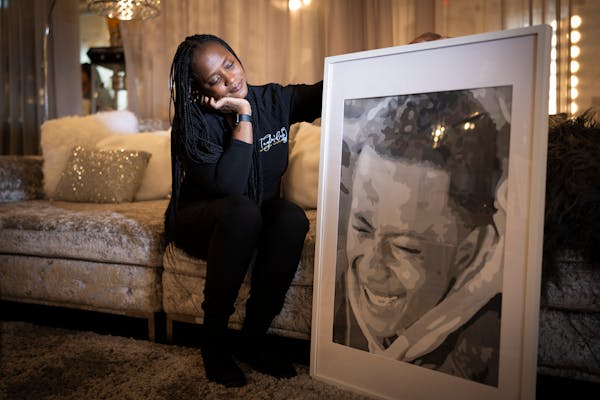In yet another sign that consumers are holding their greenbacks in a death grip, Best Buy said Wednesday that it has seen such a "rapid, seismic" drop in sales that its shareholders should strap themselves in for a bumpy ride over the next four months.
Until recently, the Richfield-based company has largely been immune to the dwindling economy that has felled other retailers, including its closest competitor Circuit City, which filed for bankruptcy this week. With a business built around the latest-and-greatest gadgets as well as televisions, kitchen appliances and home theater systems that cost thousands of dollars, many of Best Buy's customers nonetheless were more willing to open up their wallets than they were at places like Target and Macy's.
But in the past two months, the turmoil in the financial markets and lingering housing slump turned against the nation's biggest electronics retailer, and the company now says sales and profits will fall much more than expected.
For Best Buy, sales of big-ticket items haven't been on a slow decline over time. They took a nosedive.
"I can tell you the day it happened," said Mike Vitelli, Best Buy's executive vice president of the customer operating group, in a recent media briefing. "When you saw the stock market drop 1,000 points that day, you could see what happened in the marketplace."
Retailers nationwide are reporting the worst sales in decades, as consumers see their investments shrinking, their home values falling and their food bills rising. Some retail observers predict this could be the worst holiday season in three decades.
"Consumers are scared for the future," said Brad Thomas, a retail analyst with KeyBank Capital Markets in New York. "They're not sure if they should be spending money on TVs or any other discretionary item for that matter. We haven't seen anything like this in decades."
Decline in monthly sales
Best Buy, which normally does not release monthly sales results, said October sales in stores open more than a year dropped 7.8 percent compared with last year. That came on the heels of a 2.4 percent decline in September -- the company's first negative sales report in years.
And Best Buy isn't expecting a shift in fortunes anytime soon. Heading into the crucial holiday season and beyond, the retailer said sales in established stores could decline 5 to 15 percent between November and February.
A survey last week by ChangeWave Research of Rockville, Md., doesn't offer any comfort. It found only 19 percent of consumers planned to spend more money on consumer electronics in the next 90 days. Last year at this time it was double that: 39 percent.
A status quo Black Friday
When consumers hit the brakes in September, the company couldn't "adjust fast enough to maintain our earnings momentum for the year," Chief Executive Brad Anderson said in a statement Wednesday. The company adjusted annual earnings to $2.30 to $2.90, a drop of 14 to 29 percent.
President and Chief Operating Officer Brian Dunn said recently that it takes three to four weeks to respond to such a dropoff in traffic. The company's biggest expenses are labor and real estate, and cutting inventory from overseas factories and suppliers takes time to play out in stores. Dunn said that despite the stormy waters, Best Buy plans to continue investing for the long haul.
"Our strategy through this time frame isn't to duck and cover," he said.
Without offering specifics, Dunn said the company has "pulled some dollars out" of products that weren't giving expected returns and have ramped up its Best Buy Mobile unit, which is offering "massive returns." Middle-income consumers have been trading down markedly, while gadget fanatics and affluent customers are still coming into stores, he said.
Home theater sales "have hit a lull" but notebook computers, smart phones and other wireless items "are no longer a nice-to have, but a utility."
"I don't think anything's going to happen in the next 90 days that's going to make the customer feel like, 'You know what? It's time to go make a frivolous purchase,'" Dunn said. "I don't think it's going to be that kind of Christmas."
Pricing for Black Friday will be just as competitive as ever, but those looking for rock-bottom deals might not find them, despite lagging sales, Dunn indicated.
"Our strategy's not going to be to go out and scream, 'Everything's on sale,'" he said. "I don't think we'll fundamentally be able to pull people off the sidelines that can't play right now."
Best Buy still dominates the market for consumer electronics, but there are scores of competitors. Costco, Amazon, Wal-Mart and Sam's Club all are seeing increases in market share while Best Buy's has shrunk overall, according to ChangeWave.
The spoiler this season may come from Circuit City, but Best Buy stands to win in the long run. Circuit City, which is trying to reorganize, has announced plans to close 155 stores in the next few months. Most analysts expect more store closings to follow.
That leaves up to $2 billion in consumer electronics purchases up for grabs, according to Mitch Kaiser of Piper Jaffray in Minneapolis. Analyst Gary Balter of Credit Suisse predicts Best Buy will take more than a 20 percent share from its struggling rival.
"They're far and away the best company in this space from the shareholder perspective and the customer perspective," Kaiser said. "They've got a solid balance sheet, they've got a great brand, and they've got an excellent management team. They're going through tough times now. They're going to be a survivor, and I'd say a thriver."
Jackie Crosby • 612-673-7335

Ramstad: In a tight labor market, job fairs have changed to find people on the margins
Boeing is on the verge of launching astronauts aboard new capsule, the newest entry to space travel

